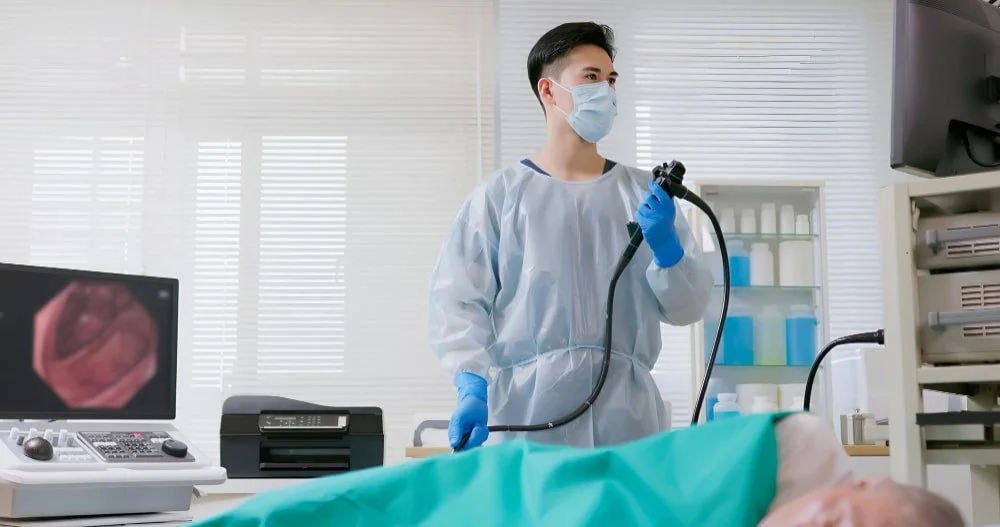What Should You Know About Colonoscopy? Get Insights
Understanding every aspect of a colonoscopy helps ensure preparedness and composure. This knowledge dispels fears and makes the experience as smooth as possible for those involved. Learning about the process helps manage expectations. This leads to a more informed and less stressful procedure. Make sure to seek out a colonoscopy in OKC for reliable and professional care.
Understanding the Colonoscopy Process
A colonoscopy allows doctors to inspect the colon and rectum closely using the tool of colonoscope, a flexible tube equipped with a camera. This procedure enables the detection of abnormalities like colorectal cancer. It may involve biopsies or the removal of suspicious tissues to ensure thorough screening.
Steps of a Colonoscopy
The typical colonoscopy lasts between 30 to 60 minutes, though preparation and recovery extend this time to 3 hours. Patients are sedated for comfort, and the colonoscope is gently inserted into the rectum. During the exam, air or carbon dioxide is introduced to expand the colon for better visibility, which might cause temporary discomfort or an urge to pass stool. Instruments for biopsy or tissue removal are also used if necessary.
Recovery After Colonoscopy
After colonoscopy, patients rest in the room designated for recovery until the effects of sedation diminish. Driving is unsafe post-procedure, so arrangements for transportation should be made. Dietary and activity instructions will be provided by healthcare professionals. Temporary symptoms like mild cramping or bloating are common, but should they persist for more than 24 hours, medical advice is necessary.
Preparing for Your Colonoscopy
Effective bowel cleansing is crucial for a successful colonoscopy, along with other steps. These include-
Pre-Procedure Diet Adjustments- On the day prior to your colonoscopy, you might need to limit your intake to a light breakfast and lunch, skip dinner or opt for a strictly liquid diet.
Clear Liquid Requirement- Your physician could advise you to consume only clear liquids like water, broth, or black tea and coffee starting the day before your colonoscopy.
Laxative Preparation- Typically, laxatives are required on the day before the procedure. You may need to take these in pill or liquid form, possibly continuing into the morning of your colonoscopy.
Using Enemas- Depending on individual needs, enema kits may be necessary either the night before or on the morning of the procedure.
Cleansing Ritual- It is advisable to shower or bathe prior to the examination to ensure cleanliness.
It's also essential to discuss current medications, especially blood thinners, having iron in the medicines, or diabetes and heart medications, which might require temporary adjustments.
Time Of Colonoscopy
A colonoscopy is advised for detecting gastrointestinal issues like bleeding, diarrhea, persistent stomach pain, constipation, or changes in bowel habits. It is vital for colorectal cancer screening. It's particularly recommended for those with a family history of colorectal issues, previous medical procedures, or those over 50 years old.
Understanding Colonoscopy Costs
The cost of a colonoscopy in OKC can vary, generally running into a number of thousand dollars. Factors like the need for doctor fees, tissue removal, and facility type affect the price. Insurance often covers part or all of the procedure, but it's wise to confirm coverage specifics with your provider.
Potential Risks of a Colonoscopy
While generally safe, colonoscopies can have risks such as bleeding or perforation, especially if biopsies are taken. Sedation also brings its own risks, including respiratory or cardiac changes, which are continuously monitored during the procedure.
Painfulness of Colonoscopy
Patients typically experience little to no pain during a colonoscopy due to sedation. Post-procedure, some may feel mild discomfort or bloating, which usually resolves within a day. Precautions like not driving post-procedure are strongly advised due to sedation effects.
Appropriate Age for a Colonoscopy
Anyone at risk should consider a colonoscopy, with routine screenings recommended starting at age 45 to 75 by the American Cancer Society (ACS). Those with significant risk factors might need more frequent screenings, depending on their health status and medical history.
Managing Abnormal Findings
If abnormalities like polyps are found during the colonoscopy process, they are usually removed and tested for cancer. Polyps are abnormal growths that develop on the inner lining of the colon or rectum, potentially indicating early signs of more serious gastrointestinal conditions. Depending on the findings, further screenings or treatments may be necessary to ensure long-term health.
Secure Your Health With Us
Screen The City understands the importance of regular health screenings. A colonoscopy in OKC is a lifesaving procedure, and we're here to help you through every step of the process. Contact us today to schedule your appointment and take the first step toward proactive health management.
**Disclaimer: This blog content does not intend to offer a doctor’s advice and mentions no relationship between any patient and the care provider.

